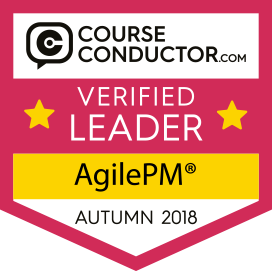
Introduction

In this ebook we explore many helpful tips to help develop your project management career.
Network to build your reputation
Developing your project management career and making connections is rarely a quick process. But you can improve and adjust with some easy techniques. Using social media to network and create a great persona is always a positive step. Investing in soft skills training is even better. Whatever steps you choose, ensure you have a plan, plenty of ambition and the right tools to get there.
Whether you want to land a new project management job, get noticed by upper management, or make contacts to grow your business, networking is essential for career development.
Many think of networking as a group of people in suits at a formal event, wine glasses in hand and engaging in small talk. However, practical online networking tools have made networking much easier (and less awkward!).
LinkedIn is perhaps the most well-known online networking website for career development. It has 800 million users, and over 50 million companies worldwide have an official LinkedIn Company Page[1]. Therefore, becoming involved in LinkedIn is essential if you are serious about getting yourself noticed online.
Creating a profile on LinkedIn enables you to connect with employers, colleagues, and others in project management whilst allowing you to showcase your project management career experience, post articles and get involved with groups.
When creating a profile, highlight your work experience, skills, education and any languages or charity work you have done. Any work experience and charity work may be relevant to project management, even if you’ve just started your project management career.
It is essential to be selective when portraying your skills on LinkedIn. Aim to highlight project management skills, such as if you have excellent communication skills or have previously shown leadership skills. You can read more about hard and soft skills relevant to project management that you may want to enhance on your LinkedIn page.
Deanne Earle, a project consultant with 20 years in the field of project management, advises you to have a good head and shoulders photo.
Portray your project management talents
Remember that other project management professionals, business owners and maybe the odd head-hunter can see the information you share on LinkedIn. Use it as an opportunity to portray what you can do, what you’ve accomplished, and what you can offer a potential new employer.
Grow your network
After creating a profile, the next step is to add people and grow your network. Start by adding your current and past colleagues, clients or even friends with professional-looking LinkedIn accounts.
Be active in groups
Once you have a LinkedIn profile and a few connections, getting involved in LinkedIn project management group discussions can boost your presence and make a great impression. With 87% of recruiters now using LinkedIn to vet potential employees, putting you and your knowledge out is essential[3].
LinkedIn has many groups to become involved with, from career-related groups to project management. A simple LinkedIn search for project management groups can generate many results, so picking popular groups with active discussions is crucial. Request to join groups to speak up and display your expert advice.
You will undoubtedly appear knowledgeable, helpful and passionate by getting involved with LinkedIn groups relevant to project management. You will also gain knowledge of the latest project management trends by being active and learning from others.
Alexia Nalewaik, Principal Consultant of QS Requin Corporation recommends that you ask for recommendations on LinkedIn, add links to articles or blogs you have written, and highlights awards. Manage your online persona and image carefully.
Hopefully, becoming an active group contributor will increase the likelihood of making connections and growing your network. In addition, potential employers, future clients or business partners will also be impressed by your posts and project management knowledge.
You can also follow trending hashtags like #projectmanagement with millions of posts. Hashtags are a great way to see what other people do in project management.
Overall, when it comes to LinkedIn, stay involved. Keep your LinkedIn profile fresh and update your stats once you get a new project management qualification or skill.
X (formerly Twitter)
It’s also worth talking about X, which used to known as Twitter. A trendy social media platform with many active users[5], X is a place to discuss and share opinions quickly and easily.
On X, you can write ‘Tweets’ which are short messages containing up to 140 characters of text, and you can also share links to media such as videos or pictures.
You can also add ‘hashtags’ to ensure your message appears quickly in a X search. For example, if you share a Tweet with some excellent career advice, adding ‘#careeradvice’ will ensure your message shows up when people search for career advice.
X has an active project management group under the hashtags #pmchat (project management chat) and #pmot (project managers on X). #pmchat has a weekly discussion, and thousands of people follow the group.
As you can imagine, this makes X a great tool for anyone wanting to build an online persona. You can put your ideas or opinions out there for all the world to see.
Although not necessarily a group like those seen on LinkedIn, following ‘project management chat’ or ‘project managers on X’ ensures you know what others are saying and gives you a new audience for your ideas, knowledge and opinions.
And this works for all professions and industries – not just project management. So, start a profile and start sharing expertise and knowledge. Then, join the discussion. You’ll be surprised at the friendships and opportunities that exist.
Write a blog
An even easier platform for raising your online persona is blogging. You can write a lengthy and in-depth piece to show off your project knowledge with a blog. These blogs can be about your project management experience, sharing project management knowledge, or even a project management book you read.
Blogging is also an excellent way to connect with others. Comment on other people’s work and start discussions.
By starting a blog relevant to your career, you are again putting your knowledge and opinions out there, enticing other professionals and building a positive online brand unique to you. Reading other blogs will also help to shape your views and put you in a position to discuss.
Core skills for career-building
Certification
The most obvious way to help build your project manager career is to figure out what is the best project management certification for you, and then to attend a project management training course to help you gain the professional certification you require.
In the UK, there are many project management qualifications which are available, not just PRINCE2.
Hard skills
A project manager working in construction might have ‘hard skills’, such as knowing PRINCE2 and how to construct buildings. But will they be a success in their career if they cannot assert themselves? What if they display an unpleasant attitude and bad work ethic? This is where soft skills are important.
Soft skills
Possessing good soft skills is vital if you want to push your career forward. Whether at a job interview, networking event, greeting a client, or just at work, having decent soft skills will make a lasting impression on the people around you.
Take a look at the soft skills a project manager’s career needs. Then, take action if you feel you could be better at one or two of those skills. Training and coaching are available from a multitude of sources.
Naomi Caietti, an influential public speaker and project management author, says that there were four things that she did early on that helped propel her forward as a project manager: involvement with her local PMI chapter and chapter leadership, networking with a global group of project managers in communities of practice, managing more complex enterprise and state-wide projects, programs and stakeholders, and developing a personal growth and development plan that included continued leadership training[8].
Like Naomi suggests, form a personal development plan, find some project management training and improve your soft skills in project management. You will no doubt communicate better, come across more positively, be a better leader, and most importantly, be someone people want to employ or do business with.
Confidence of networking in project management
Soft skills are also an integral part of networking face-to-face. As Naomi says above, networking was one of the things she did early in her career. But how do we network effectively and with confidence?
Feeling low in confidence during networking opportunities is common, but it is essential to understand the difference between low self-esteem and low confidence. As Shaun Thomson says: ‘Confidence is what we project and what we want others to see, not how we feel.’[9]
You can learn to become more self-confident. A great technique to appear confident is ‘assertiveness techniques’. Shaun suggests confidence can be achieved: ‘through assertiveness techniques – moving from a passive position to contributing to a conversation and clearly articulating your viewpoint. When we feel unconfident, we ignore social cues to contribute; embrace these moments to add to the conversation and believe that your input is valid’.[10]
Be involved in projects
Remaining passive and not putting your idea or opinion forward will hold you back, whether at a networking event, meeting, or in day-to-day office life. But, on the other hand, by putting forward your contribution, you are making people notice, and they will become interested in you.
Face-to-face and online networking
Lastly, if you’re looking for a face-to-face networking opportunity, APM regularly holds events. Make some connections before you even attend the networking event. If you want to avoid too many awkward introductions, why not contact people you know will be attending beforehand?
It certainly worked for CEO David DeWolf: ‘I choose to reach out prior—via a quick email—to a handful of participants that I knew would be attending. I introduced myself and let them know that I was looking forward to connecting. On the first day of the event, my simple trick paid off. Within 20 minutes of arriving at the event one of the contacts—an individual that I genuinely thought would be a good addition to my network—asked me to lunch’.[11]
There are also online events to help you network and learn about project management. For example, PMI regularly has virtual sessions and webinars about project management.
Conclusion
Developing your project management career and making connections is rarely a quick process. But you can improve and adjust with some easy techniques. Using social media to network and create a great persona is always a positive step. Investing in soft skills training is even better.
Whatever steps you choose, ensure you have a plan, plenty of ambition and the right tools to get there. We hope this article has helped familiarise you with some of the tools and techniques available.
Finally, if you don’t mind, why don’t you Tweet about this article, including the URL, or share it on Facebook or LinkedIn. Even better, add a link to it from your website. That way, others will be able to benefit from the advice too.
References
[1] About LinkedIn. 2022. About LinkedIn. [ONLINE] Available at: https://about.linkedin.com/. [Accessed 12 July 2022].
[2] [4] [6] [7] [8] Women In Project Management Interviews | Knowledge Train. 2021. Women In Project Management Interviews | Knowledge Train. [ONLINE] Available at: https://www.knowledgetrain.co.uk/project-management/project-management-courses/women-in-project-management. [Accessed 12 July 2022].
[3] Social Media Marketing Trends, Latest News & Tips | Adweek. 2015. Social Media Marketing Trends, Latest News & Tips | Adweek. [ONLINE] Available at: http://www.adweek.com/socialtimes/survey-96-of-recruiters-use-social-media-to-find-high-quality-candidates/627040. [Accessed 12 July 2022].
[5] Statista. 2029. • Twitter: monthly active users worldwide 2019 | Statista. [ONLINE] Available at: https://www.statista.com/statistics/282087/number-of-monthly-active-twitter-users/. [Accessed 12 July 2022].
[9] [10] the Guardian. 2015. Six steps to improving your confidence in business | Winning new business | The Guardian. [ONLINE] Available at: http://www.theguardian.com/small-business-network/2015/apr/21/improving-confidence-business-success-skill. [Accessed 12 July 2022].[11] Fortune. 2015. 3 Ways To Effectively Network | Fortune. [ONLINE] Available at: http://fortune.com/2015/07/16/david-dewolf-networking-advice/. [Accessed 12 July 2022].








